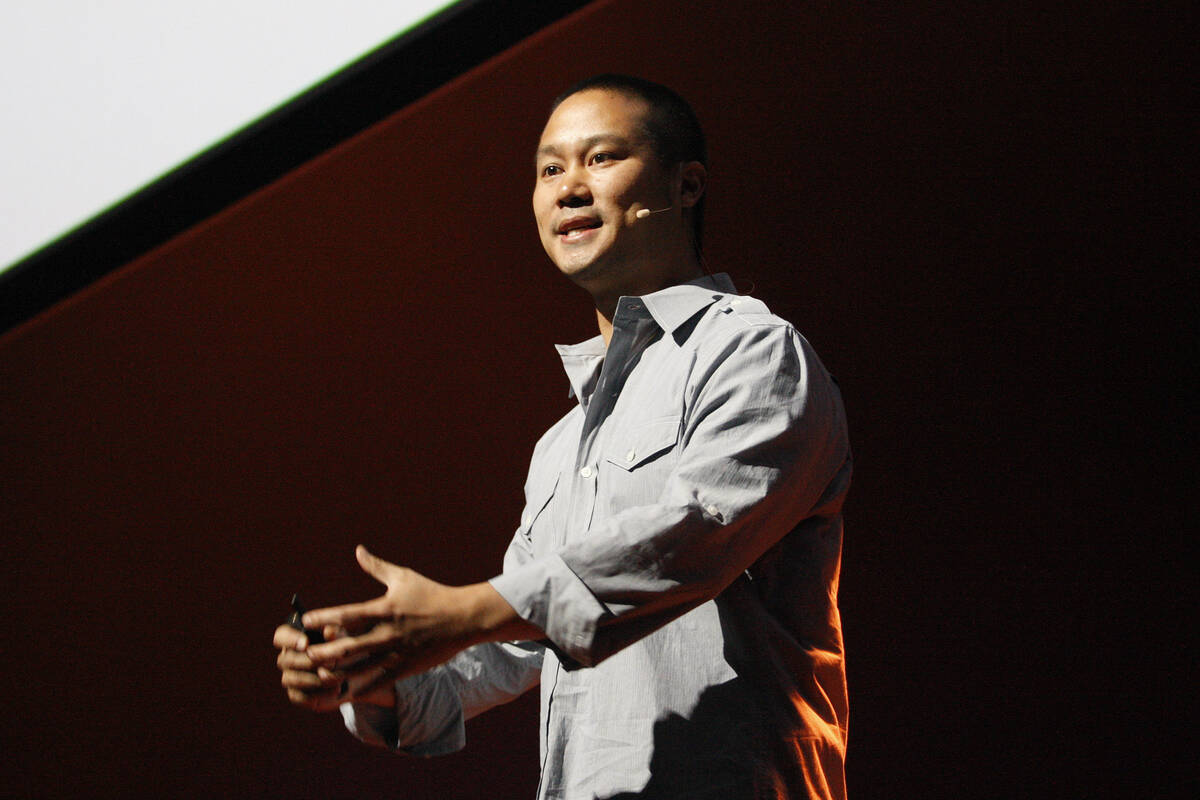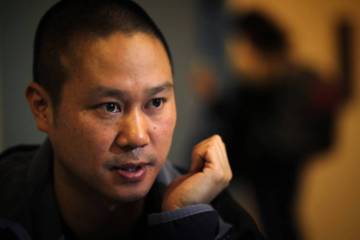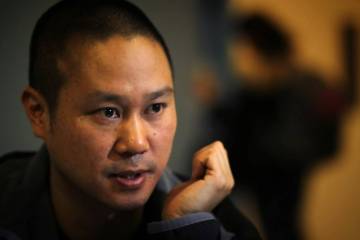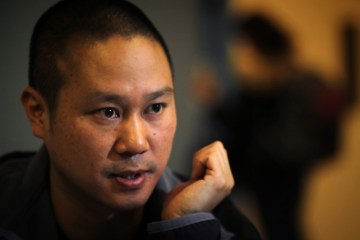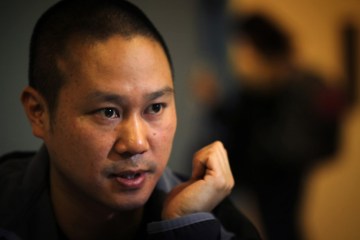Mystery mounts over Tony Hsieh’s will
The mystery surrounding former Zappos chief Tony Hsieh’s will has only increased, new court filings show.
Lawyers for the late tech mogul’s estate served subpoenas to landlords who owned Las Vegas apartment complexes where witnesses who signed the will apparently lived. The goal, according to the attorneys, was to identify and locate residential records for these individuals.
But property managers did not find any record that two of those witnesses had lived in the associated properties, according to a filing last week in Clark County District Court by the estate’s legal team. Subpoenas seeking information on a third witness had not produced results yet, the attorneys noted.
The lawyers also reported that, as part of a court order for courthouse administrative records, they obtained a phone number and mailing address for Kashif Singh, the person who wrote a letter describing how the will was discovered more than four years after Hsieh’s death.
But the call went straight to voicemail, which was a computerized or electronic voice, and Singh has not called back. The legal team also sent him a letter, but he has not replied to that either, according to another court filing last week.
The phone number had a 307 area code, which covers the entire state of Wyoming, and the mailing address was the same as a registered agent in Wyoming’s capital, Cheyenne.
Such businesses handle incorporation filings and other corporate paperwork.
Will surfaces
Hsieh, the former CEO of online shoe seller Zappos and face of downtown Las Vegas’ economic revival, died in 2020 at age 46 from injuries suffered in a Connecticut house fire.
He was unmarried and died with a massive fortune, having sold Zappos to Amazon in a $1 billion-plus deal and assembled a sprawling real estate portfolio in the Fremont Street area and the wealthy ski town of Park City, Utah.
Hsieh’s father, Richard Hsieh, is the court-appointed administrator of his son’s estate, and the dad’s legal team stated multiple times in court filings that the younger Hsieh died without a will.
However, in what has proved to be a surprising and bizarre turn of events, law firms McDonald Carano and Greenberg Traurig filed court papers in April with a copy of Tony Hsieh’s seven-page last will and testament — dated March 13, 2015 — and a letter explaining how it was found.
It was discovered in February in the personal belongings of the late Pir Muhammad, according to the letter, which stated Muhammad suffered from Alzheimer’s disease and was not aware Hsieh had died.
The letter did not say when Muhammad died or where he lived, nor did it provide any details about his career or his association with Hsieh.
Hsieh had named Muhammad an executor in the will and gave him “exclusive possession” of the original, in part to prevent anyone from destroying it, the will indicates.
But several people who knew Hsieh have said they never heard of Pir Muhammad, and the Las Vegas Review-Journal found nothing that linked the name to Southern Nevada or confirmed who he was.
Death certificate
The will was signed by several witnesses, three of whom had a Las Vegas address listed with their name and signature in the document. The Review-Journal has been unable to locate or speak with the witnesses.
Meanwhile, no contact information or details on Singh were provided in the initial filing in April.
According to a subsequent court filing by McDonald Carano and Greenberg Traurig, Muhammad was Singh’s grandfather.
Those law firms filed court papers in June seeking to admit Hsieh’s will to probate and included a heavily redacted copy of Muhammad’s death certificate, without explaining how they learned of it.
The death certificate was apparently issued by the government of Balochistan, a western province in Pakistan. It shows that Muhammad was a Pakistani national who was born in 1931 and died in October 2022 — more than two years before Hsieh’s will was discovered among his personal possessions.
Muhammad’s address, place of death, and other personal information were redacted.
Last week, attorneys for Hsieh’s estate wrote in court papers that the death certificate states only that a person named Pir Muhammad died but does not show that it was the same Pir Muhammad who was named in the will.
The Review-Journal previously found more than 1,000 profiles on Facebook with the name Pir Muhammad. Many of them said they lived in Pakistan.
Contact Eli Segall at esegall@reviewjournal.com or 702-383-0342.




